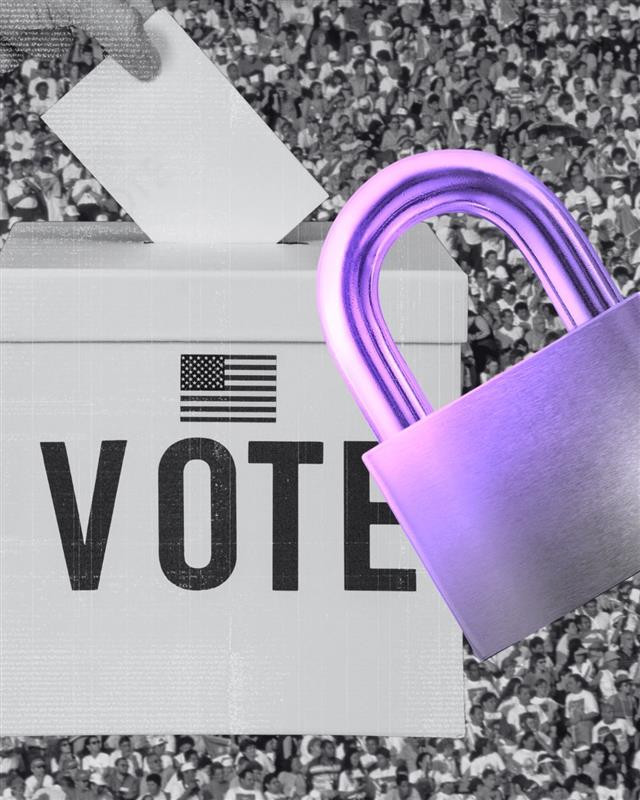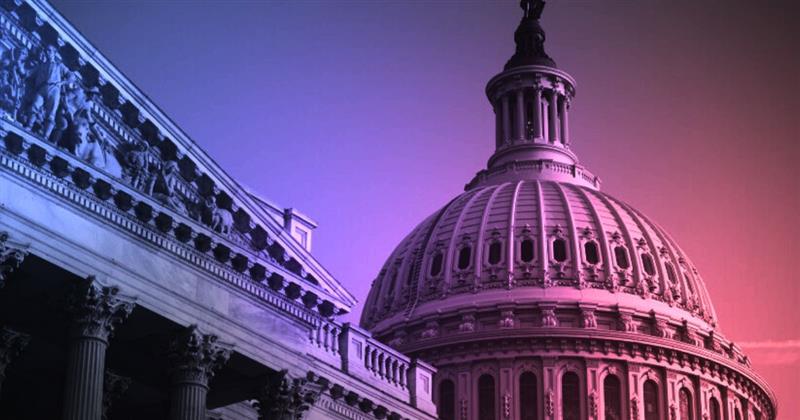What are independent voters asking this week?
Are state-driven partnerships like the one between California, Oregon, and Washington a viable path forward for states to promote public health?
The West Coast Health Alliance (WCHA)—a partnership between California, Oregon, and Washington—was announced earlier this month in response to the politicization of health science by the Department of Health and Human Services (HHS) and the Centers for Disease Control and Prevention (CDC). This appears to mostly be driven by the mass firings of CDC staff and guidance issued around vaccines. These developments, officials in these states say, jeopardize public health.
Partnerships between states aren’t uncommon, but there are limitations on how far WCHA can go. Article I, Section 10, Clause 3 of the Constitution says, “No State shall, without the Consent of Congress…enter into any Agreement or Compact with another State[.]” The Supreme Court clarified the reach of the Compact Clause in Virginia v. Tennessee (1893) by explaining, “[I]t is evident that the prohibition is directed to the formation of any combination tending to the increase of political power in the states, which may encroach upon or interfere with the just supremacy of the United States.”
That said, on average, states are members of about 25 interstate compacts. In total, there are over 250 interstate compacts in place within the United States. The Council of State Governments maintains the National Center for Interstate Compacts to facilitate and provide technical assistance for these agreements between states. The most popular of these compacts generally relate to professional licensure and child welfare, but they can have a wide-ranging policy focus. Oftentimes, they serve as a way to deal with a thorny policy issue that Congress refuses to take up, or as we have seen in the last two congresses, they just aren’t able to get anything done. Additionally, these compacts help states assert their own sovereignty against an overbearing federal government.
The Trump administration could argue that the WCHA is encroaching on federal power, but vaccine guidance and recommendations are not binding on the states. This remains a binding precedent established by the Supreme Court in Jacobson v. Massachusetts (1905), in which the Court held that states have exclusive authority to compel vaccinations or not. See, for example, the recent news out of Florida that vaccines are no longer mandatory, or West Virginia, where there is no moral or religious opt-out for mandatory vaccinations.
Is WCHA a viable path forward for states? Possibly, but the reach of arrangements like WCHA will be limited because of the blue state/red state divide in the country. Either way, health science and policy have become politicized to the point where untested and unproven ideological dogmas are more important to officials than promoting public health.
Are we now in a constant state of escalation of gerrymandering for both parties to keep their political power? Is it justified?
The only way out of the current predicament regarding gerrymandering is for Congress to pass legislation prohibiting congressional redistricting more than once every ten years. The one time would be immediately after the Census. Of course, there would have to be an exemption for court-mandated redistricting. Another part of that legislation, or a separate bill, should be a requirement for states to create independent redistricting commissions. There would undoubtedly be pushback from Republicans on this, but the Constitution does give Congress the authority to “make or alter [state] regulations” pertaining to federal elections.
Whether or not mid-cycle gerrymandering is justified may depend on which team you prefer or your opinion on the current administration. Republicans and Democrats have been drawing district lines to benefit themselves for years. It’s one of the reasons Congress has become so partisan. Currently, 40 congressional districts are truly competitive.
To answer the questions, it certainly does appear that we’re now in a constant state of escalation, not limited to gerrymandering congressional districts. It’s not justified. Texas, the first state to begin this spate of redistricting, had no meaningful justification for redrawing its congressional lines. It was purely a partisan gambit to give Republicans some cushion ahead of the 2026 midterm elections. California’s escalation, which is pending voter approval in November, is no better. Other state legislatures may, too, consider redrawing district lines to benefit one party over the other. Where does it end, though?
Democrats winning the House in 2026 may end the rubber stamp on Trump’s policies in the House and provide meaningful oversight over the administration’s actions, but let’s not forget that the end goal for Democrats is still the same political power that Republicans currently have. The endless escalation of partisan gamesmanship, including gerrymandering in the states driven by the quest for political power in Congress, won’t end until independent voters begin rejecting it.
What policy ideas or legislation would push back on the surging authoritarianism we’re seeing in America?
The need for Congress to assert itself as a coequal branch of government and rein in the power of the Executive Branch cannot be overstated. During the Nixon administration, Congress passed several pieces of legislation—from the War Powers Resolution of 1973 to the Congressional Budget and Impoundment Control Act of 1974 to the Freedom of Information Act Amendments of 1974—to provide critical checks on the Executive Branch. Nixon vetoed at least the War Powers Resolution, although Congress overrode it.
A similar approach is needed now. This, of course, will require a commitment to de-escalation rather than partisan gamesmanship. Congress needs to approach the situation with the current administration in much the same way, but with even more of a sense of urgency. This would include Congress taking back its power over tariffs (Trade Review Act, H.R. 2665 and S. 1272) and National Emergencies Act reform (ARTICLE ONE Act from the 118th Congress, H.R. 3988 and S. 1912, or the REPUBLIC Act, S. 4373, also from the 118th Congress).
Before anything can change, national reconciliation is necessary to understand what led to the Executive Branch's abuse of power, allowing a discussion on how to prevent it from happening again. It’s hard to say what that looks like, how it happens, and how much further we have to fall for it to get there.
We lay the groundwork for a national reconciliation by beginning to treat those with whom we have differences as people deserving of respect and dignity. It doesn’t matter if those differences are political, religious, or something else. We can’t have the conversations that we need to have if we’re easily casting each other aside because of how we choose to label someone or how they label themselves.


.jpeg)


.jpg)